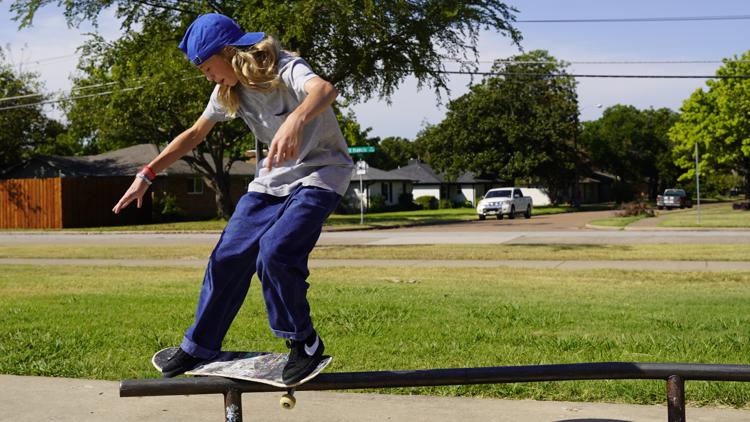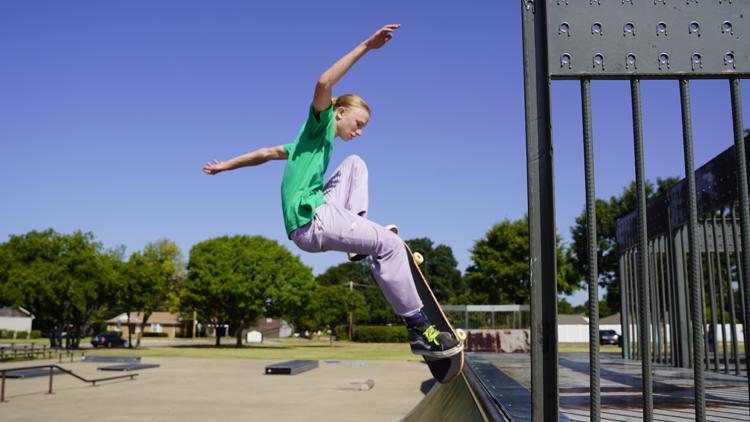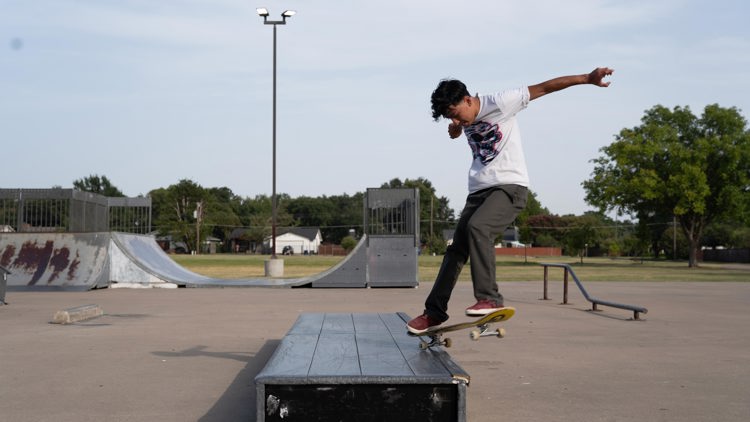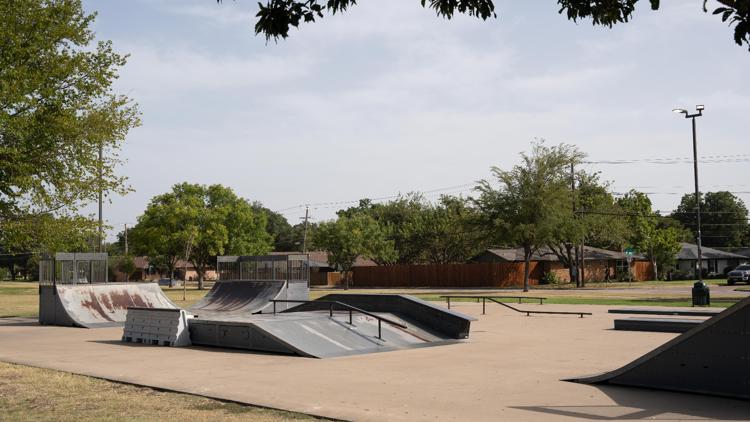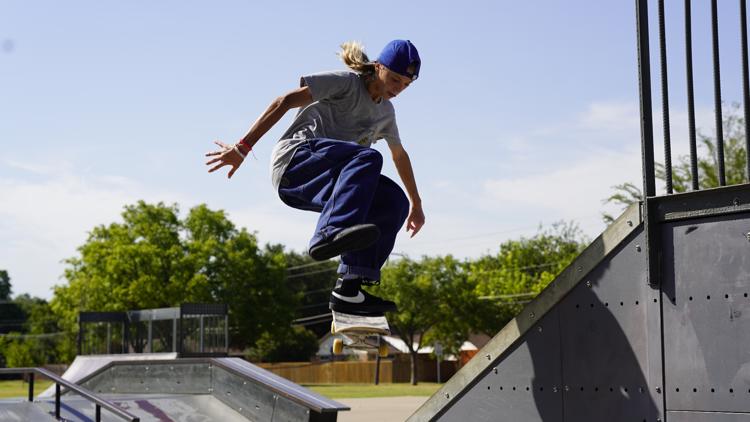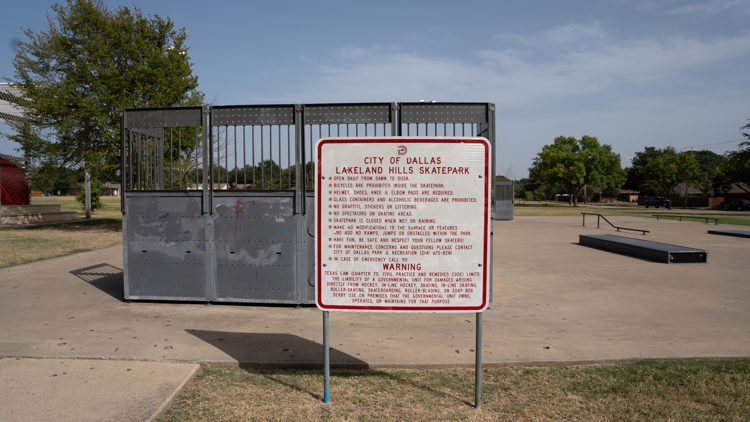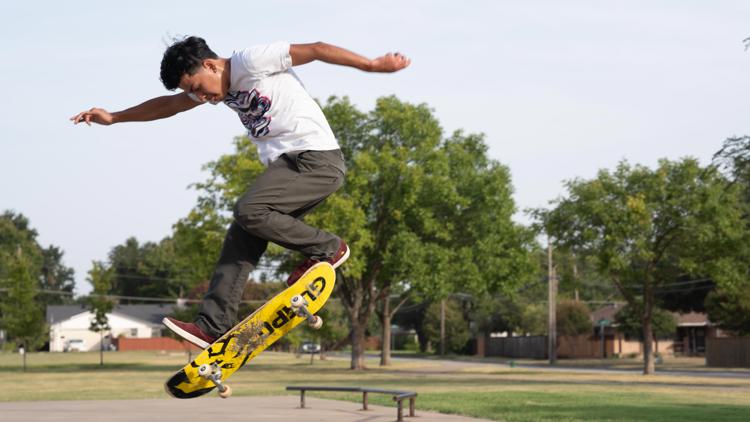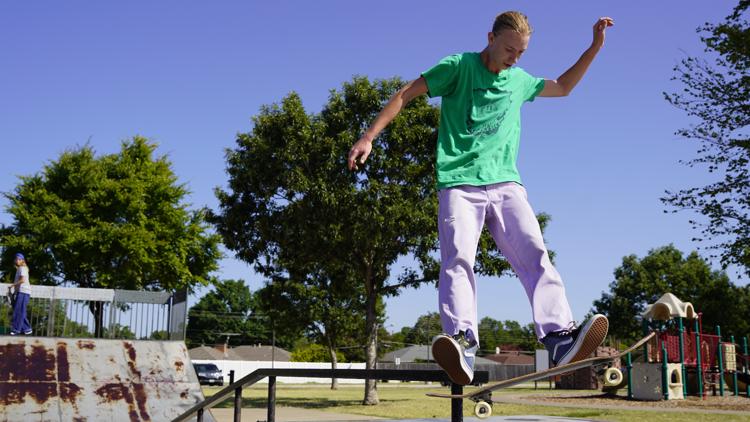No longer just skating by? Community support and increased funding is fueling Dallas' public skatepark future
Dallas should have 18 skateparks by now to account for its population size and demand, officials say. For now, the city only has one -- with more on the way.
Claire Tweedie
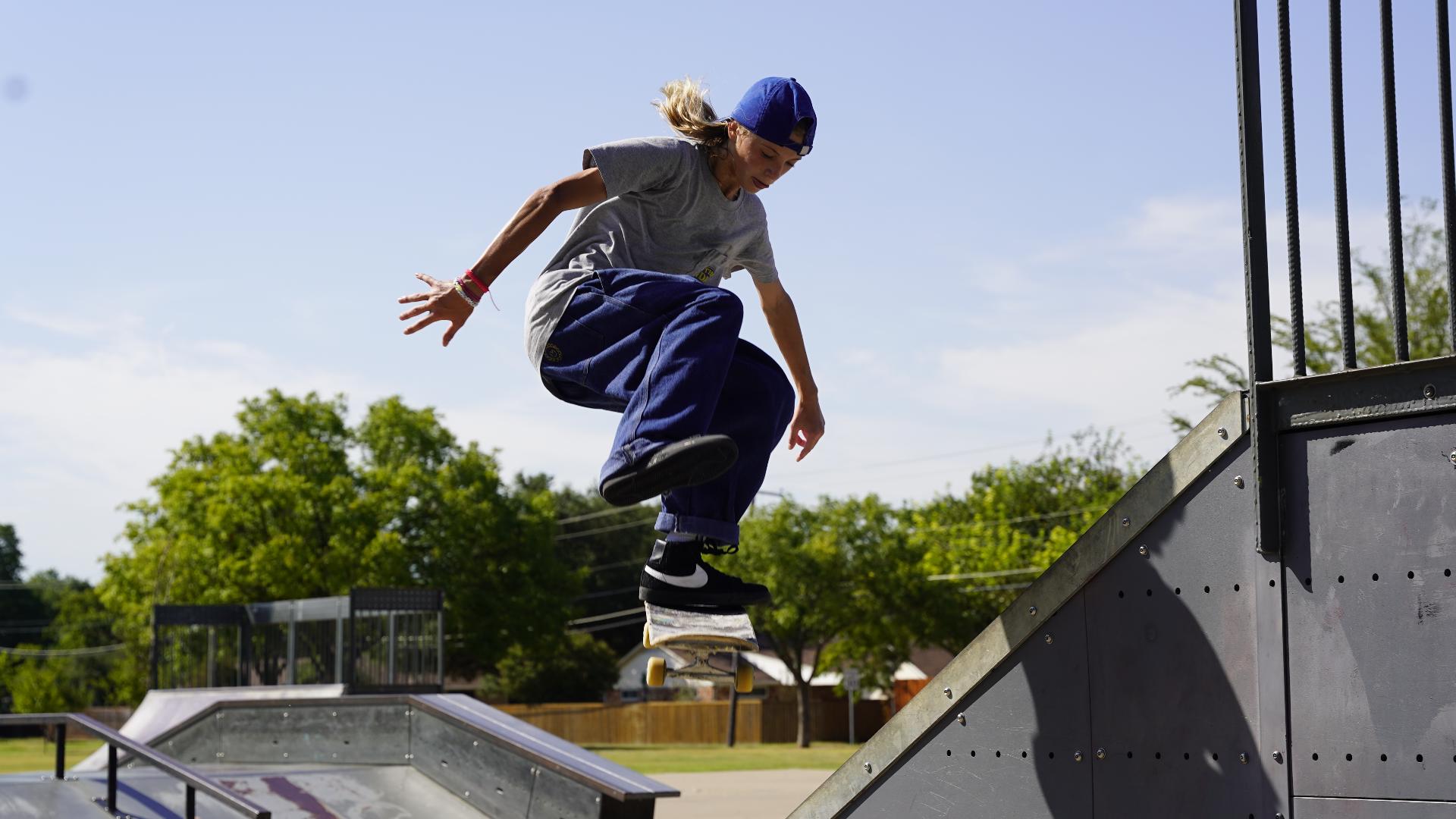
The Lakeland Hills Skatepark may not look like much to most Dallasites. But to Brooks Harrison, 13, and his brother Breck, 16, it’s the place where their love of skateboarding began.
The metal surface-mount equipment that makes up the 2007-established park is rusted and hot to the touch from its constant exposure to triple-degree summer heat. The brothers take time to make sure the equipment is usable for skating before they even test their boards on it. Their years of skating experience means they know how to take a fall on concrete or metal with ease, but it's still better to be safe than sorry.
“The experience you get from landing a trick after you try it like a thousand times and fall and hurt yourself -- being able to get back up and do it again and land it -- there’s nothing like it,” Breck said.
As they step out onto the concrete lot on a recent Saturday morning, it’s clear their pre-skating ritual of checking the equipment at Lakeland Hills is one they’ve perfected over time. They’re each armed with beach towels used to wipe the puddles off the equipment from last night’s rain. They brought along wax for the rails, too.
“I love the freedom of it,” Brooks said of skating “Being able to do whatever you want with no rules on what you have to do each day. You work on whatever you want to get better at.”

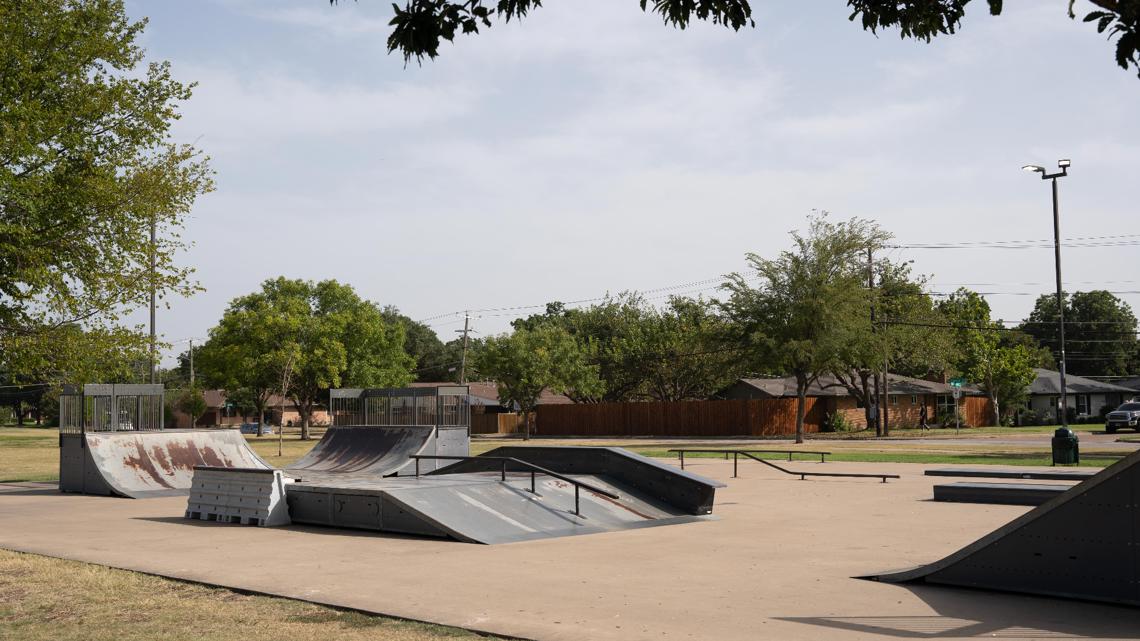
There are wooden bleachers bordering one side of the skatepark, and nothing to shade them. There's a shaded picnic table area close by, but not close enough for their dad Brian Harrison to really see the sweat and skateboarding skills his sons show off.
Their father already knows how talented his sons are, though; he’s been driving them to skateparks and skating competitions for years.
“I’ve never been a skater and never did this growing up,” Brian said. “But what I’ve loved seeing is what the kids are doing, and the friends they’re making, and the commitments they make to themselves to keep doing this. This is about pure passion.”
The Lakeland Hills Skatepark is only a 10-minute drive from the Harrisons' house, which is fortunate for them. It’s the only public skatepark in the city.
Dallas should have 18 skateparks by now to account for its population size and demand, according to a Dallas Park and Recreation Department comprehensive plan approved by its board in 2016.
Chapter 1 Bachman Lake Skatepark
Roughly 15 miles away from Lakeland Hills, the city’s second public skatepark is just now being constructed.
The Bachman Lake Skatepark in Northwest Dallas broke ground in February 2024, and is estimated to finish construction in March 2025. The development is 60% complete, said Park and Recreation Assistant Director Christina Turner-Noteware.
The project was originally slated to open in December 2024 but was delayed by construction issues -- like groundwater found close to the surface and asbestos discovered in nearby buildings that needed to be torn down. New features including lighting were also added to the development when skaters pointed out it might be hard to use the park after sunset.
District 6 Council Member Omar Narvaez, who oversees the area where Bachman Lake is, said it’s not just his constituents who continually rally for this skatepark.
“Over these past seven years, all I can say is it's not just across my district but across the city where people want this recreational activity, big or small,” Narvaez said.
Voters approved bond funding for the Bachman Lake Skatepark in 2017, but the area’s history with Dallas’ skateboarding culture runs even deeper.
In the '80s, Bachman Lake was once home to the iconic “Clown Ramp,” a colorfully painted vert ramp that hosted skateboarding legends from the city like Jeff Phillips, Jon Comer and Mike Crum. Skateboarding icon Tony Hawk even once graced the Clown Ramp in 1984, back during its legendary run throughout the decade when skating's popularity first exploded across the country.
Clinton Haley, founder of the nonprofit Skate Parks for Dallas, said a new generation of city officials who were raised in the '80s and are open to the skateboarding subculture means skateparks are finally becoming a municipal priority -- even if the community has always been here.
“There have been more efforts over the past decade to provide Dallas skaters and the community with these kinds of park amenities,” Haley said. “These decisionmakers might have had friends that skateboarded, or even skateboarded themselves, so they understand the benefits of having this.”

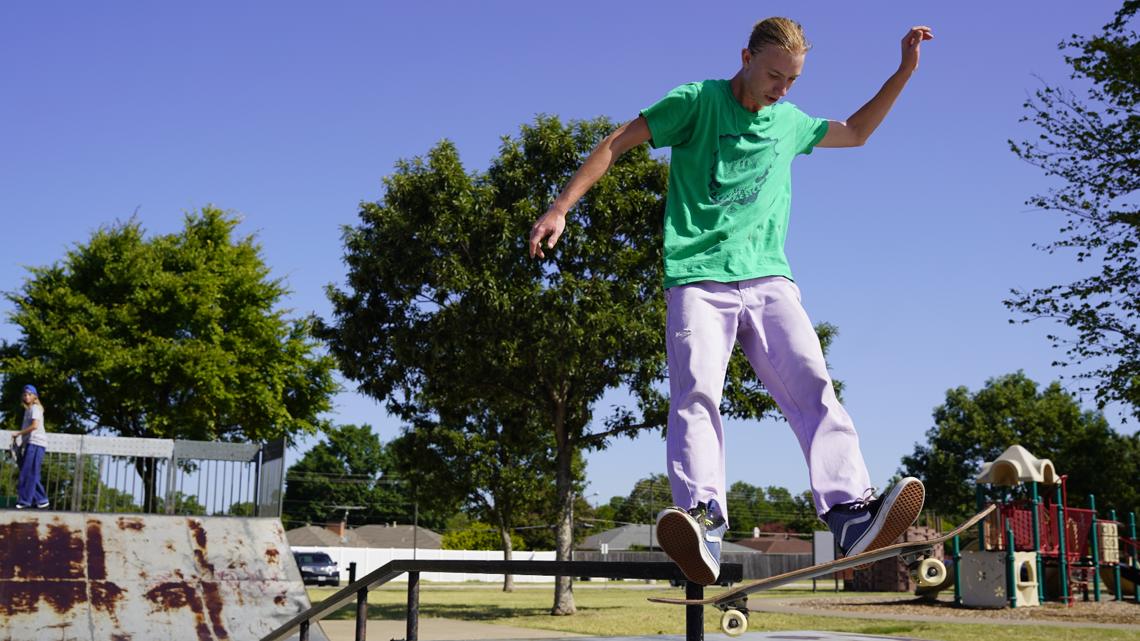
The benefits of the Bachman Lake Skatepark for Brooks are the new challenges it will offer. No two parks are alike, he said, and he wants to test his skills on each one he encounters.
“New parks mean a new opportunity to learn new tricks and experience new obstacles,” the 13-year-old said.
For his older brother Breck, the visibility of new skatepark developments means a chance to change the stereotype of the sport he loves.
“There are a lot of people who won’t go to skateparks because they think it’s a scary place,” Breck said. “If we had more of them, a lot more new people would start to see that skaters aren’t scary people at all. They just want to help you get better.”
Chapter 2 Oak Cliff Skatepark
About a 20-minute drive away, another skatepark is taking shape in Dallas -- although it’s still in the preliminary phase of its creation. District 1 Council Member Chad West is currently spearheading efforts to develop the Oak Cliff Skatepark .
His efforts began two years ago after a group of local advocates approached him with the idea. The current planned location for the project is in Westmoreland Park, which hasn’t been updated since the 1980s when a shade structure was added near its picnic area.
“This part of the district where the skatepark is proposed for really needs something in that neighborhood,” West said. “And so far, the community said they want it there. I don’t see that changing.”
For 16-year-old Aaron Vargas, who lives in Oak Cliff with his parents Melissa and Anthony, the closest skatepark he can visit is Lively Skatepark in Irving. These days, Aaron said he mostly frequents one in Garland -- nearly 40 minutes away.
A skatepark in Oak Cliff would not only mean a chance to practice closer to home, but also a chance to share his favorite sport with others.
“It’s always what I’ve wanted for the neighborhood I live in -- not only for me, but for my whole community to have a skatepark,” Aaron said.

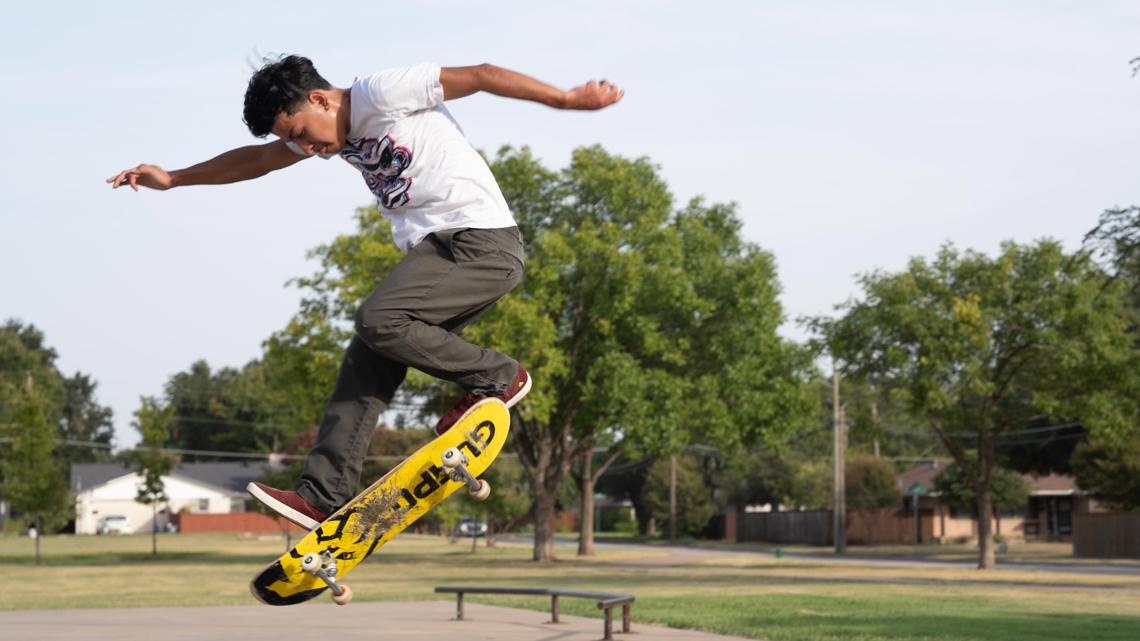
Melissa and Anthony know it will take years for the Oak Cliff project to be built, but they still remain avid supporters. They said that, even if their son doesn’t get to benefit from the new development while he's still a teen himself, other kids in the community will. It’s just a matter of funding.
“We could want it and we can dream of it, and we can beg for it, but at the end of the day, everything costs,” Anthony said.
“The more people that show up, and the more we speak on it, the city might be willing to put a little more money in one direction than the other,” Melissa added.
To date, West and the community he represents have raised $150,000 to make this dream a reality. Helping their cause is the fact that the city agreed to match up to $400,000 of private funds raised. West also helped win a $1 million budget allocation from Dallas in the 2024 Bond Election to go toward the effort. In total, that means there could eventually be $1.8 million in funds for the future skatepark.
While there is still $250,000 left to be raised, Turner-Noteware said the Park and Recreation department is already communicating with potential designers on the project. She also said the department hopes to break ground on the project in Spring or Summer of 2025.
The project’s biggest donor, though, isn’t from a die-hard skateboarder – it’s from a former rollerblader. Dallas business owner Sarah Zubiate-Bennett and her husband donated $25,000 to help make the development happen.
While no longer an active participant in the sport herself, Zubiate-Bennett said she fondly remembers rollerblading around her childhood neighborhood in El Paso.
“Once you’re exposed to that community, there’s a certain bond you create with those people,” Zubiate-Bennett said. “I wanted to stick with them and donate.”
Chapter 3 Lakeland Hills Skatepark and More
The Lakeland Hills Skatepark is also getting some much-needed attention from the city amid the other new developments.
In the 2024 Bond Program, Dallas allocated $1 million to redo the skatepark. Those efforts will receive $200,000 toward its design in the 2024-25 fiscal year, while the actual reconstruction is set for $800,000 in the 2026-27 fiscal year.
At this point, the park is mainly made up of surface-mount equipment instead of poured-in-place concrete like the Bachman one is planned to be. As the Harrisons and others can attest, aspects of the skatepark have rusted, been damaged or required more maintenance over the years.

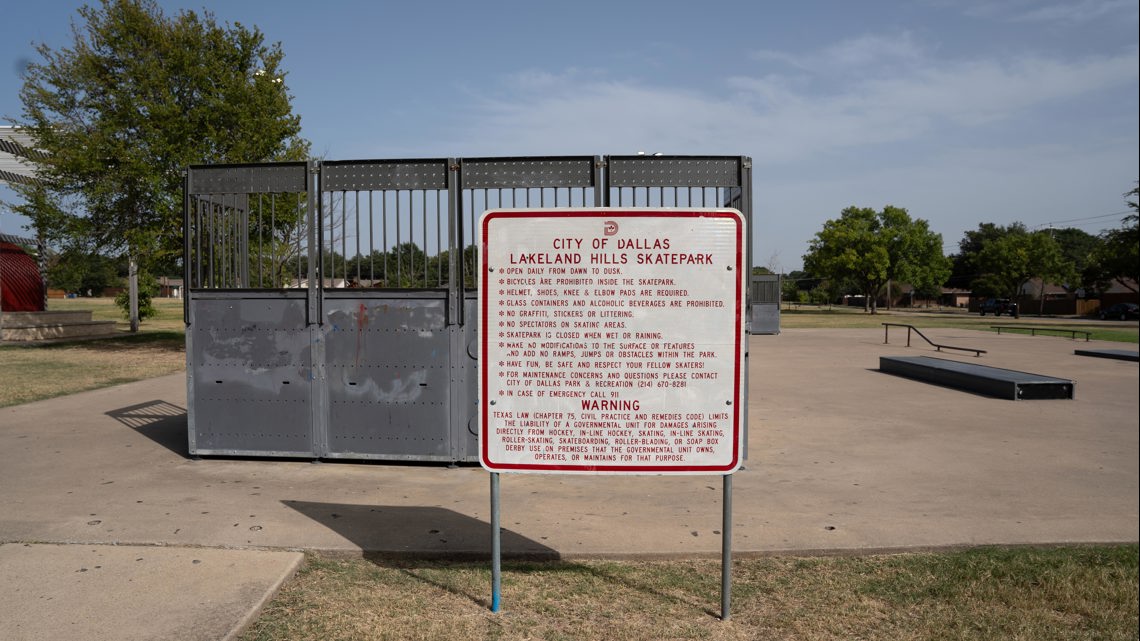
“For a population that has not enjoyed this amenity in the city for decades, and has to go to the suburbs just to skateboard, this is huge,” Haley said of all the development happening in his scene. “Regional skateparks like Bachman are amazing -- but these smaller, satellite skateparks are just as important to this community.”
There are even more on the way. A fourth skatepark is currently in the works at the Park and Recreation department, Turner-Noteware said. There is no disclosed location for the project yet since it’s still in its preliminary planning phase. But it’s another win for the city’s underserved skateboarding community just the same.
“We need more skateparks,” Brian said while watching his sons skate the park at Lakeland Hills. “We want more of this so everyone can experience it. All you need is a board, hopefully a helmet, and a passion for doing it.”
To donate to the Oak Cliff Skatepark, click here.


